第47章 THE INTERVIEWER ATTACKS THE SPHINX(3)
"Good morning,Mr.Paul,"he said."How do you like the look of these oranges?""They pretty fair,"said Paolo:"no so good as them las'week;no sweet as them was.""Why,how do you know without tasting them?"said the Interviewer.
"I know by his look,--I know by his smell,--he no good yaller,--he no smell ripe,--I know orange ever since my head no bigger than he is,"and Paolo laughed at his own comparison.
The Interviewer laughed louder than Paolo.
"Good!"said he,--"first-rate!Of course you know all about 'em.
Why can't you pick me out a couple of what you think are the best of 'em?I shall be greatly obliged to you.I have a sick friend,and Iwant to get two nice sweet ones for him."Paolo was pleased.His skill and judgment were recognized.He felt grateful to the stranger,who had given him,an opportunity of conferring a favor.He selected two,after careful examination and grave deliberation.The Interviewer had sense and tact enough not to offer him an orange,and so shift the balance of obligation.
"How is Mr.Kirkwood,to-day?"he asked.
"Signor?He very well.He always well.Why you ask?Anybody tell you he sick?""No,nobody said he was sick.I have n't seen him going about for a day or two,and I thought be might have something the matter with him.Is he in the house now?""No:he off riding.He take long,long rides,sometime gone all day.
Sometime he go on lake,paddle,paddle in the morning,very,very early,--in night when the moon shine;sometime stay in house,and read,and study,and write,--he great scholar,Misser Kirkwood.""A good many books,has n't he?""He got whole shelfs full of books.Great books,little books,old books,new books,all sorts of books.He great scholar,I tell you.""Has n't he some curiosities,--old figures,old jewelry,old coins,or things of that sort?"Paolo looked at the young man cautiously,almost suspiciously.
"He don't keep no jewels nor no money in his chamber.He got some old things,--old jugs,old brass figgers,old money,such as they used to have in old times:she don't pass now."Paolo's genders were apt to be somewhat indiscriminately distributed.
A lucky thought struck the Interviewer."I wonder if he would examine some old coins of mine?"said he,in a modestly tentative manner.
"I think he like to see anything curious.When he come home I ask him.Who will I tell him wants to ask him about old coin?""Tell him a gentleman visiting Arrowhead Village would like to call and show him some old pieces of money,said to be Roman ones."The Interviewer had just remembered that he had two or three old battered bits of copper which he had picked up at a tollman's,where they had been passed off for cents.He had bought them as curiosities.One had the name of Gallienus upon it,tolerably distinct,--a common little Roman penny;but it would serve his purpose of asking a question,as would two or three others with less legible legends.Paolo told him that if he came the next morning he would stand a fair chance of seeing Mr.Kirkwood.At any rate,he would speak to his master.
The Interviewer presented himself the next morning,after finishing his breakfast and his cigar,feeling reasonably sure of finding Mr.
Kirkwood at home,as he proved to be.He had told Paolo to show the stranger up to his library,--or study,as he modestly called it.
It was a pleasant room enough,with a lookout on the lake in one direction,and the wooded hill in another.The tenant had fitted it up in scholarly fashion.The books Paolo spoke of were conspicuous,many of them,by their white vellum binding and tasteful gilding,showing that probably they had been bound in Rome,or some other Italian city.With these were older volumes in their dark original leather,and recent ones in cloth or paper.As the Interviewer ran his eye over them,he found that he could make very little out of what their backs taught him.Some of the paper-covered books,some of the cloth-covered ones,had names which he knew;but those on the backs of many of the others were strange to his eyes.The classics of Greek and Latin and Italian literature were there;and he saw enough to feel convinced that he had better not attempt to display his erudition in the company of this young scholar.
The first thing the Interviewer had to do was to account for his visiting a person who had not asked to make his acquaintance,and who was living as a recluse.He took out his battered coppers,and showed them to Maurice.
"I understood that you were very skilful in antiquities,and had a good many yourself.So I took the liberty of calling upon you,hoping that you could tell me something about some ancient coins Ihave had for a good while."So saying,he pointed to the copper with the name of Gallienus.
"Is this very rare and valuable?I have heard that great prices have been paid for some of these ancient coins,--ever so many guineas,sometimes.I suppose this is as much as a thousand years old.""More than a thousand years old,"said Maurice.
"And worth a great deal of money?"asked the Interviewer.
"No,not a great deal of money,"answered Maurice.
"How much,should you say?"said the Interviewer.
Maurice smiled."A little more than the value of its weight in copper,--I am afraid not much more.There are a good many of these coins of Gallienus knocking about.The peddlers and the shopkeepers take such pieces occasionally,and sell them,sometimes for five or ten cents,to young collectors.No,it is not very precious in money value,but as a relic any piece of money that was passed from hand to hand a thousand or fifteen hundred years ago is interesting.The value of such relics is a good deal a matter of imagination.""And what do you say to these others?"asked the Interviewer.Poor old worn-out things they were,with a letter or two only,and some faint trace of a figure on one or two of them.